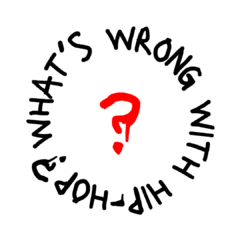Sean Combs, also known as Diddy or Puff Daddy, has long been a prominent figure in hip-hop—a multi-talented mogul who played a key role in shaping the genre since its inception. From founding Bad Boy Records to producing chart-topping hits, Combs has wielded considerable influence within the music industry. However, his recent legal troubles, including federal charges of rape and human trafficking, raise a critical question: Is hip-hop’s bad boy done?
Combs burst onto the scene in the early ’90s, establishing himself as a charismatic figure who blended entrepreneurship with an extravagant lifestyle. Bad Boy Records became synonymous with the East Coast hip-hop revival, producing artists like The Notorious B.I.G., Faith Evans, and Mase. Combs was not only a talented producer but also a master of marketing, helping to shape the hip-hop aesthetic that included flashy cars, designer clothes, and the pursuit of wealth and power.
However, behind the glitz and glamour, there has always been a darker side to Combs’ persona. His relationship with women in the industry has often been scrutinized, with many accusing him of leveraging his status and influence to manipulate and exploit. The culture of groupies and the access to women that Combs fostered within the hip-hop community served as a breeding ground for abusive behavior—a microcosm of broader issues within the genre.
Combs’ alleged actions reflect a troubling trend in hip-hop culture, where power dynamics often favor men and lead to the exploitation of women. This behavior is not isolated; many artists have mirrored Combs’ approach, perpetuating a cycle of abuse and entitlement. The glorification of “bad boy” culture has influenced a generation of men in hip-hop, leading them to believe that such behavior is not only acceptable but desirable.
This trend has fostered an environment where women are objectified, and their voices are often silenced. With the rise of groupie culture, the industry has normalized the idea that women are merely accessories to the male experience in hip-hop, rather than equal participants. Combs, as one of the most prominent figures, has played a significant role in shaping this narrative.
As the legal system begins to hold Combs accountable for his alleged crimes, it raises larger questions about the future of his career and his legacy in hip-hop. The charges against him are serious and paint a picture of a man who has exploited his power for personal gain. If found guilty, the repercussions could not only end Combs’ career but also serve as a wake-up call to an industry that has long turned a blind eye to similar abuses.
Moreover, the fallout from these allegations has the potential to reshape the hip-hop landscape. As conversations around consent, power dynamics, and accountability gain traction, artists and fans alike may begin to reevaluate the behaviors and attitudes that have long been accepted in the hip-hop community. The departure from glorifying the “bad boy” image could lead to a new era of respect and equality within the genre.
Hip-hop has always been about community—about lifting each other up, sharing stories, and advocating for social change. Yet, the current situation with Combs highlights the need for deeper introspection and accountability within the community. Artists, producers, and fans must collectively reject behaviors that perpetuate violence and misogyny.
There is a growing movement among women in hip-hop and beyond to reclaim their narratives and demand respect. As more women speak out about their experiences and challenge the status quo, the genre can begin to heal and evolve. The time for change is now, and it requires the commitment of everyone involved in hip-hop to create a safer and more inclusive space.
Sean Combs’ recent legal troubles pose a significant threat to his legacy as one of hip-hop’s most influential figures. As he faces serious allegations, the question of whether hip-hop’s bad boy is done becomes more than just about one man; it reflects a broader cultural reckoning within the genre. If hip-hop is to move forward and reclaim its revolutionary roots, it must confront the issues of abuse, misogyny, and power dynamics that have long plagued its community. The future of hip-hop depends on the willingness of artists and fans alike to demand change and prioritize respect over exploitation. The bad boy persona may have dominated the narrative for too long, but it is time for a new chapter—one where all voices are valued, and real change can thrive.
